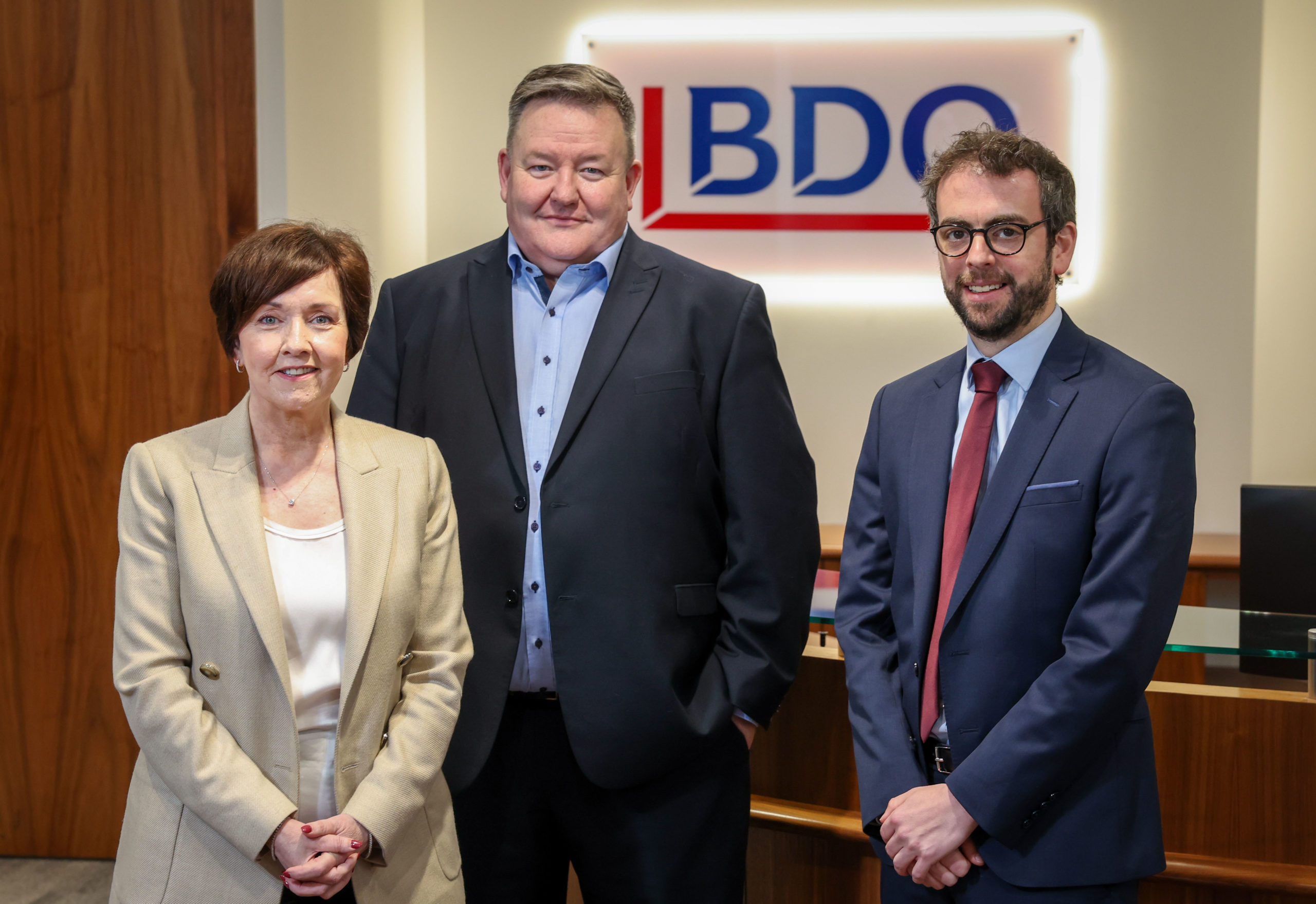From securing EU/UK trading arrangements to addressing labour and skills challenges, Northern Ireland’s economy requires a razor-like focus on growth, says NI Chamber
- 60% of NI Chamber members are positive that turnover will grow over next 12 months
- 55% believe their business will grow in 2023, while 33% expect it to contract
- Expectations to raise prices have softened but remain high by historical standards
- 84% of members report being negatively affected by energy costs
- Recruitment difficulties are a persistent concern
Business performance in Northern Ireland improved in Q1 of 2023, with signs of confidence returning around business growth and profitability. That is according to the findings of the latest Quarterly Economic Survey (QES) from Northern Ireland Chamber of Commerce and Industry (NI Chamber) and business advisors BDO NI, published today (4 April 2023).
Confidence has improved significantly, with 60% of survey respondents positive (47% Q4 2022) that turnover will grow over the next 12 months compared to 18% who believe it will contract. But the persistent challenge of finding and keeping the right people with the right skills continues to dominate, with 92% of manufacturers and 82% of services businesses finding it difficult to get staff.
When asked about the top three asks to drive growth, the response was dominated by agreement on the Protocol, with 3 in 5 members (62%) believing that an EU/UK deal on the NI Protocol is key to unlocking Northern Ireland’s growth potential. The Windsor Framework was announced during the survey fieldwork period. This was followed by improved access to labour and skills (46%), lower corporation tax (40%) and support with energy costs (39%). One in 5 (19%) believe business rates reform is key.
The survey also revealed that inflationary pressures are showing some signs of easing but remain high, with labour market costs now becoming one of the top concerns for businesses. In Q1 23, 86% of manufacturers and 80% of services firms were reporting labour costs as one of the key pressures on them to raise prices.
There has been some easing of energy cost pressures in Q1 2023, however 1 in 2 businesses have experienced an increase in energy costs of more than 30% in the last quarter. For 1 in 4 respondents, higher energy costs are significantly affecting the sustainability of their business.
Manufacturing performance
Both manufacturing and services saw a stronger performance in Q1 2023 compared to the last 6 months of 2022. Almost all manufacturing balances are positive with the exception of domestic sales and orders and cashflow. With these exceptions, NI is performing above the UK average across all key indicators and is in the top tier of UK regions for all other indicators. Q1 23 has been a particularly good quarter in terms of export sales and orders. Labour and raw material costs still dominate as the two key pressures points for businesses to raise prices (86%). Interest rates have also become a more dominant concern, affecting 43% of members within the manufacturing sector.
Services Performance
It has been a strong start to 2023 for the services sector, with all key indicators positive. Northern Ireland is a top performing region for 9 of the 11 key indicators. After a challenging end to 2022 where some key balances including domestic and export sales were negative, all key trading balances are positive in Q1 2023 with particularly strong indicators around employment and recruitment intentions.
Prices and Costs
Labour costs now one of most dominant cost pressures facing firms. In Q1 2023 86% of manufacturers and 80% of services firms are reporting labour costs as one of the key pressures on them to raise prices. Raw material costs remain significant for manufacturers (86%) and utilities for both sectors (79% manufacturers and 73% services). Interest rates are a growing concern in both sectors with 43% of manufacturers and 35% of services reporting it as more of a concern than 3 months ago.
There has been easing of energy costs pressures in Q1 2023 although this still remains high by historical standards. 1 in 2 members (52%) have experienced an increase in energy costs of 30% plus in Q1 2023, down from 79% in Q4 2022. 1 in 4 businesses state that higher energy costs are significantly affecting the sustainability of their business, with 84% of members negatively affected to some degree.
Recruitment
Hiring expectations among manufacturers continues to improve quarter on quarter, with a balance of +33% of businesses expecting employment to grow in the next 3 months. In services the balance of firms expecting to grow their workforce is the highest on record at +47%. Most businesses are still engaged in some level of recruitment, with 75% of manufacturers and 73% of services recruiting.
EU Exit
The Q1 2023 findings highlight that most businesses have adapted to new trading arrangements post EU Exit. 33% have adapted well to new trading arrangements, up from 23% at the end of the first year of EU Exit in 2021. 23% had found new trading arrangements difficult but are now able to deal with them. However, EU Exit is still having a negative impact on some businesses with 1 in 6 still finding trading arrangements difficult and 7% stating that they are posing significant challenges for their business.
Debt and Repayment
2 in 5 businesses (41%) have some form of debt, made up of 12% with COVID related debt only (e.g., CBILs or BBILs), 21% with other forms of debt and 8% with both. Just under half (46%) of those with debt have some concerns about their ability to meet debt repayments, with almost 1 in 5 moderately/seriously concerned at present.
Commenting on the survey findings, Ann McGregor, Chief Executive, NI Chamber said:
“With political agreement reached on the Windsor Framework and the 25th anniversary of the Belfast Good Friday Agreement soon upon us, 2023 is a year of potential that Northern Ireland must harness. This means turning targets into action and being confident and ambitious about economic growth now.
“After a notable decline in business confidence in the second half of 2022, results from Q1 of this year show a significant and timely improvement.
“Three years of economic challenges including EU exit, the pandemic, global supply chain crises, inflation and political instability have all taken a significant toll on our members, so it is encouraging to see sentiment improving, albeit from a weak base.
“What matters now is that policymakers commit to an absolutely razor-like focus on economic growth – that includes listening to businesses on how to drive it. We must capitalise on the opportunities offered by the Windsor Framework and ensure that operational challenges are minimised. Of course, that is just one part of the jigsaw; for optimal growth businesses need a restored, functioning Executive to support them in attracting and retaining the best people, with the right blend of skills. Helping businesses tackle the skills challenge is just one of the many reasons we need to see the devolved institutions restored urgently.”
Brian Murphy, Managing Partner, BDO NI added:
“It’s been a long time since we’ve seen such positive momentum and sentiment from Northern Ireland businesses, and it is great to see it. Although local companies still have challenges to face, it is hugely encouraging that we are seeing such levels of consistency in positive sentiment across all sectors.
“The survey highlights that 4 in 5 businesses are trading either well or reasonably well, this is particularly notable given the testing backdrop of rising costs and barriers to recruitment. Within manufacturing, local businesses are outperforming the UK average and in the Service sector, we are the top performer in the UK across 9 of the 11 indicators.
“The impact of the pandemic is still being felt by many businesses, particularly in how they are managing their debt. Whilst there is still a significant number of organisations with at least some concern in how they can maintain debt repayments, it is notable that over 47% are currently debt free, a significant achievement in this climate.
“For Northern Ireland companies to continue to compete there is an urgent need for investment in people and skills, this will facilitate access to a diverse and skilled workforce, which is clearly in demand. Such investment would play a key role in boosting productivity across the economy and as a result, unlocking our future growth potential.”
Download a copy of the QES Report for Q1 23 here.


